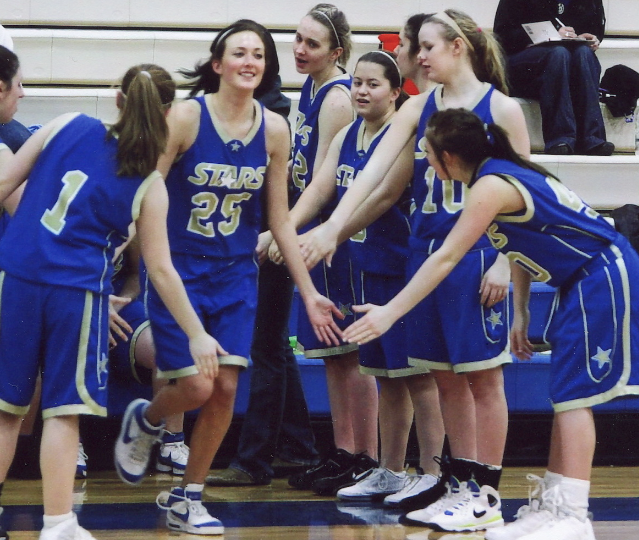Youth basketball coaching done well depends significantly on the coach’s relationship with the players. If a young team is firmly behind its coach, players will play their hearts out, and that coach will get their best efforts. So, how does a volunteer youth basketball coach build trust with players?
At a very high level, trust-building comes down to credibility and how one treats people. It’s wise to always keep that in mind. How did Abraham Lincoln build trust with his advisors? Many of his closest advisors started as enemies.
Honest Abe was patient, treated people well, and built trust. So, what concrete things can one do to build that trust as a coach? Here are some ideas.
Youth Basketball Coaching: 7 Tips to Build Players’ Trust
1.) Compliment often.
For young players, playing their best basketball comes from being confident. Compliments go a long way to building confidence. Be sincere, but keep the kind comments flowing. Address the team as a whole and players individually. Find players doing something well, and let them know you noticed.
2.) Use players’ first names.
Learn first names quickly and use them frequently. I think Dale Carnegie, in How to Win Friends and Influence People, wrote that hearing our first names is like music to our ears.
3.) Come prepared.
If you come to too many disorganized practices, your players will know. Being prepared shows you care about the players, so come ready to give your best. Avoid long monologues when addressing the team. Keep your comments short but frequent. With a plan of attack in hand, you will be able to coach in the present and not worry about what you’re going to have the team do next.

4.) Spotlight players’ skills.
When teaching a new skill, whether a technique for boxing out for rebounds or executing a reverse layup, demonstrate it and let your players try it. After observing several efforts, pick a player or two who does it well and ask the team to watch them because they’re doing it well. What a boost for the player who is asked to demonstrate the skill! Try to ensure all the players are called out for something throughout a few practices.
5.) One-minute player pep talks.
Don’t forget the power of one-to-one communication. Most often, you’re addressing the team as a whole or a group of players. But a well-timed message delivered to an individual player before a game or practice can do wonders. Highlight some skills they’re doing well and challenge a player to try something they haven’t demonstrated before, e.g., dribbling or driving with their off-hand to the basket.
After the first couple of weekends of games, I always found it effective to meet with players individually for just a couple of minutes to let them know how good a job they were doing. You’ll likely have players at different skill levels with different strengths and weaknesses at every age. Use the sandwich approach of combining things they’re doing very well at the beginning and end of the conversation, and challenge players with an opportunity to improve in the middle of the conversation.
6.) Reduce whistle use.
Save your whistle for when you’re scrimmaging. Try to get through a practice without using it at all. I always found it easier to form a tighter grouping and talk softly vs. having the team dispersed and needing to shout so they could hear. Your vocal chords will thank you.
7.) Plan fun.
The #1 reason players play youth sports is to have fun, according to every report and post-season survey I’ve ever read. While basketball is inherently a fun sport, show players that your agenda addresses some of the components of their agenda. Plan fun into each practice. Ask them if you can’t figure out what your team considers fun. Start with one of the team leaders.
By Michael O’Halloran
Michael O’Halloran is the author of the Well Prepared Coach Youth Basketball Practice Plans and Layups and Life Lessons: 101 Coaching Tips for Youth Basketball.
You might like:
Youth Basketball Practice Plans
“…I coach 5th and 6th-grade girls basketball and after winning only 3 games the previous 2 years combined, I began using your structured practice plans each week and now we are one game away from the League Championship!”
Mike Jadach
JV Coach Assumption School, Ansonia, CT
Editable Basketball Certificates